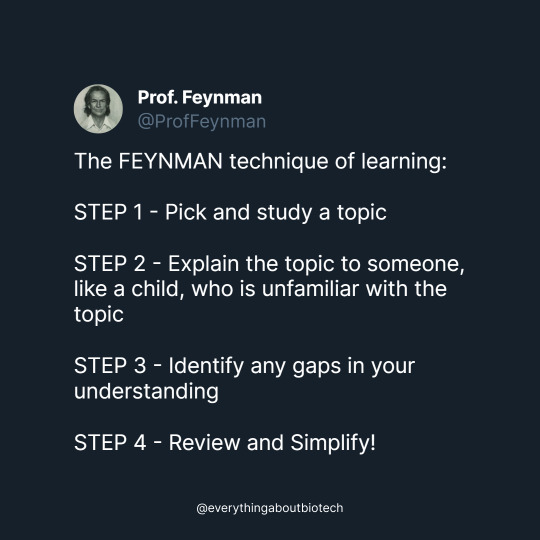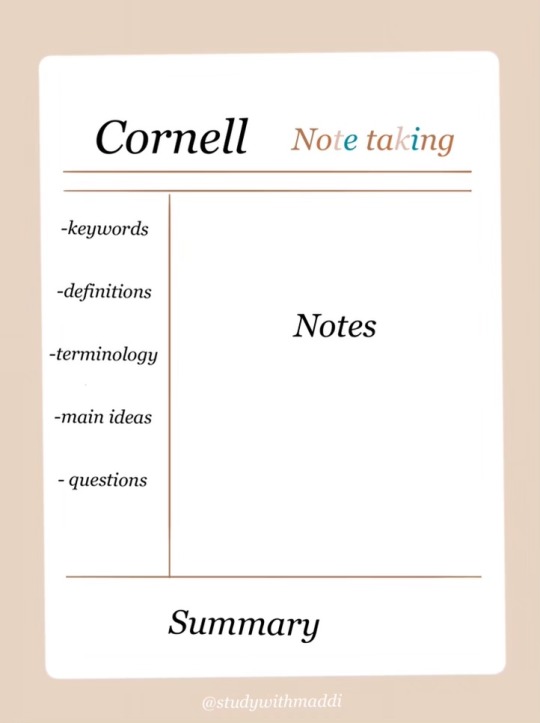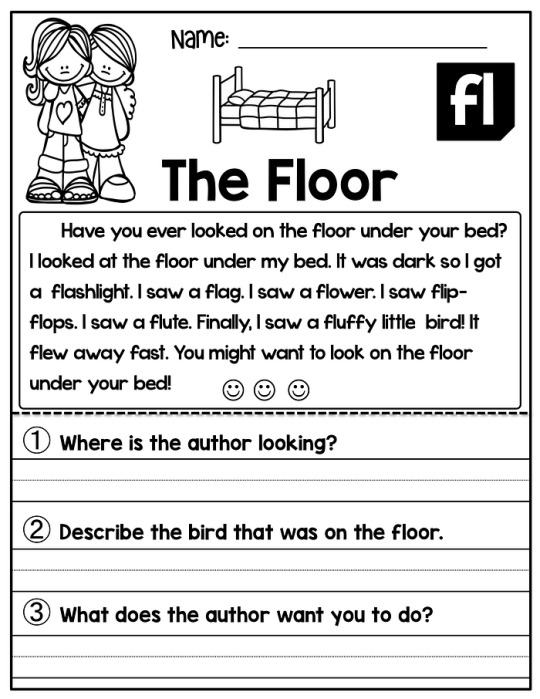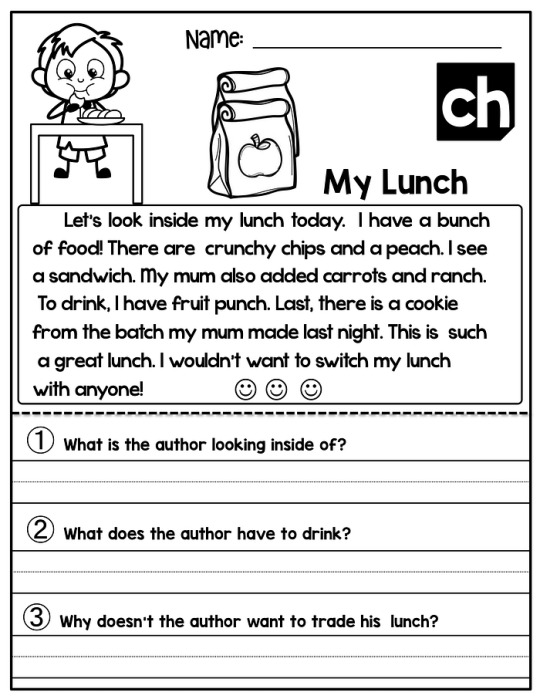#studyskills
Explore tagged Tumblr posts
Text
healing from academic perfectionism




by mindy @glowettee
let's talk about something that affects sooo many of us in school - the exhausting cycle of perfectionism. here's how to actually work through it while maintaining your academic success 🤍
understanding your perfectionism type:
the all-or-nothing scholar
signs: abandoning tasks that aren't perfect
impact: incomplete assignments pile up
solution: create "good enough" standards for each task
practice: deliberately submit b+ work sometimes
reflection: track how "imperfect" work still succeeds
the endless editor
signs: revising until exhaustion
impact: never feeling finished
solution: set concrete editing limits
practice: use time boundaries for revisions
reflection: note when extra editing didn't change grades
the preparation procrastinator
signs: over-preparing but never starting
impact: delayed work and missed deadlines
solution: create starting rituals
practice: begin with imperfect outlines
reflection: document when "unprepared" work succeeded
practical steps for recovery:
(don't mind the formatting <3)
grade requirement analysis
calculate minimum grades needed
identify where perfection isn't necessary
create realistic grade goals
develop subject-specific standards
track effort vs. grade correlation
time management reality
set maximum study times
include mandatory breaks
create firm stopping points
establish "good enough" timeframes
practice leaving work unfinished
submission strategies
develop personal rubrics
create completion checklists
establish revision limits
set realistic quality standards
practice timely submission
perfection pressure release
identify trigger assignments
create comfort with b+ work
develop release statements
practice "done is better than perfect"
celebrate imperfect submissions
sustainable study practices
implement 80/20 rule
create efficiency metrics
develop quality guidelines
establish effort limits
maintain energy balance
daily implementation:
morning:
set realistic daily goals
identify perfection triggers
establish time boundaries
create completion criteria
prepare acceptance statements
during work:
use timer limits
implement stopping points
practice leaving rough drafts
accept good enough
maintain progress over perfection
evening:
evaluate effort balance
celebrate task completion
acknowledge progress
release perfectionist thoughts
plan next day's boundaries
practical exercises:
the b+ experiment
choose one assignment monthly
deliberately aim for b+ quality
track actual vs. expected grades
note emotional responses
document learning outcomes
time boundary practice
set firm time limits
stop when timer ends
submit work as is
track grade results
build trust in efficiency
imperfection tolerance
start assignments roughly
resist immediate editing
maintain forward momentum
accept messy progress
focus on completion
measuring progress:
keep a recovery tracker:
time spent on assignments
stress levels during work
grade outcomes
emotional responses
energy preservation
weekly check-in questions:
did i maintain reasonable hours?
where did i release perfectionism?
how did i handle imperfect work?
what boundaries did i maintain?
where can i ease standards?
tip: you can maintain excellent grades without sacrificing your wellbeing to perfectionism 🤍
xo mindy
p.s. your worth as a student isn't measured by perfect scores, but by your growth and learning.

#study#studyblr#studying#academicblr#academia#college#university#studentlife#mentalhealth#healing#perfectionism#recoveringperfectionist#academicperfectionism#perfectionismrecovery#healingfromperfectionism#academichealing#academicburnout#academicrecovery#studytips#studyadvice#academicadvice#studentadvice#studyhelp#academicsupport#studyresources#studyskills#glow up tips#glowettee
117 notes
·
View notes
Text
The FEYNMAN Technique of Learning

STEP 1 - Pick and study a topic
STEP 2 - Explain the topic to someone, like a child, who is unfamiliar with the topic
STEP 3 - Identify any gaps in your understanding
STEP 4 - Review and Simplify!
Follow @everythingaboutbiotech for more useful posts.
#FeynmanTechnique#LearningStrategies#RichardFeynman#ConceptUnderstanding#SimplifyLearning#EducationTips#EffectiveLearning#TeachingForUnderstanding#StudySkills#KnowledgeRetention#LearningProcess#EducationalStrategies#ConceptExploration#CognitiveLearning#StudyTechniques#MemorizationTips#LearningEfficiency#SelfTeaching#RetentionSkills#ExplainingConcepts
15 notes
·
View notes
Text
I'm going to state an opinion that is probably very unpopular, and I will probably get hate for it, but that's okay.
I think that it's okay for a teacher, regardless of said teacher's gender, to say they love and care about a student(regardless of student's gender), even if it's unprofessional. They are kids, after all. As long as it's not romantic, inappropriate, or ill-mannered, then it's okay. Some kids need affection from teachers that they might not get at home. So, even if it's unprofessional, it's not necessarily a bad thing.
Once, a paraprofessional(who wanted to be a teacher), had said, 'I have a sharp thing in my hand-' and, to me, it felt like a threat. The feelings didn't process/sink in till later, when I got home. The next day, 5th hour, I mentioned to my English teacher(who is in the same room as the paraprofessional). The para himself had left to go put their snacks in the new high school. While he was gone, I went over to my English teacher after I finished all my Study Skills assignments(I had a few late papers, plus that day's work), I told her about what he said and told her it hurt. I couldn't help but cry. She offered me a hug, and I reluctantly took it(despite my dislike of hugs). She told me he didn't mean it, told me that he had a rough day the day before, because a kid had been saying rude things to them(I think), and it made him a bad mood. She told me he 'loved' me, et cetera. I can't remember all that she said, but she said that he thinks I'm talented, regardless if that's true or not. She said he would never want to hurt me. When he came back, she asked him to come over by her. Me, I was just fidgeting with my Rubik's Cube, trying to do my usual thing of 'pretending I'm fine, nothing is wrong here' thing. My English teacher tried to get me to tell him how I felt, but I repeated, 'I can't,' several times, and then started crying again. I hated myself for that. I hate crying for stupid reasons, especially in front of people. Anyways. He said, 'I feel bad just because you're upset,' not exactly the same way he said it probably, i don't remember, but it gets the point across. My English teacher tried to get me to say it, but I couldn't, she she told him for me. At some point, he muttered something about the kid. I think it was about the things he said. Can't blame him. After it was explained to me, I understood. I understood where he was coming from. But what he said still hurt. I thought he wanted to hurt me because of the serious tone he had. I think... it hurt that bad only because I like him. Technically, he's a paraprofessional, but he pretty much teaches a class, so I always viewed him as a teacher. If I do it like that, you could say he's my favorite 'teacher'. The English teacher is a lot easier to talk to, more understanding, less dismissive, and caring. The para, on the other hand... I mean, regardless of it all, I still think he's cool. It's hard being drawn to someone who seems like he cares less about you with how dismissive he can be. There was this one kid(also the same kid who said those rude things to the para and English teacher) that started calling me a weirdo and a bunch of other things. I don't know him... not really. It was only a tad bit, very little, and I think it's odd how I cared less about the things he said but cared more when the para said something hurtful. Also my English teacher said, in front of the para, that I was one of his favorites and he x
'corrected' her, saying I was his favorite, not just one of them. I don't know if he actually meant that, or he just said that to make me stop being upset.
One time in class he said they aren't supposed to have favorites so he won't tell people that someone is his favorite and the first thing I said was like, 'you probably wouldn't mean it anyway,' and he denied what I said. If he won't tell other students who his favorites are, why would he tell me I'm his favorite? To get me to shut up and stop being so emotional over something stupid?
I have regrets, too. When I was home the day it happened, after I had processed my feelings, I cried awhile(hate it so much), and then I wrote a hateful letter to him. I wouldn't actually give it to him, it's like, 'write letters to the people who hurt you,' type thing. But after the next day, the day he apologized, I regretted it so bad. I feel guilty for it.
Also once time in class he said he moved schools 4 times before coming to our school when he was a kid and I asked why he moved so much but then I said, 'I don't care,' and he paused weirdly. After that, I felt guilty. Still do. I considered asking him why he moved so many times when he was in school before going to our school tomorrow in class. I don't want to feel guilty anymore, and I'm genuinely curious. Is that a bad idea?
#paraprofessional#TeachersHaveEmotions#They are valid#100%#English#StudySkills#Stabby stab me with a fricking seam ripper(the sharp thing he had in his hand at that moment)#favorite teacher?!#more like more annoying teacher#regardless hes still a favorite#although sometimes i hate that he is my favorite for how dismissive he is
2 notes
·
View notes
Text
Effective Note Taking: Tips to Improve Your Study Habits
Note taking is an essential part of studying, and developing your own note taking style can significantly improve your learning experience. However, note taking should not just be a process of copying information from the board or textbook. It should be personalised to your learning style and optimised for effective retention and understanding. Here are some tips to improve your note taking habits:
Structure Your Notes for Organisation and Revision
Your notes should have a clear structure with headings, subheadings, and lists for better organisation and revision. Writing notes as if you were explaining the topic to someone who does not take the course is a good practice to ensure that your notes are clear and logical.
Additionally, labelled diagrams and concept maps can help you visualise and understand complex information. Studies have shown that visual aids, such as images and diagrams, are easier to remember and recall than text alone.
2. Highlight and Use Colours to Emphasise Key Points
Highlighters and coloured pens are not just for making pretty notes. They can also help you categorise and emphasise key points, making them easier to remember. Develop your own colour coding system, using different colours for different topics, definitions, or important information. Symbols, such as stars or underlines, can also be used to create your own coding system.
3. Use Your Own Words and Avoid Copying Verbatim
Avoid the temptation to copy everything word for word from the board or textbook. Instead, focus on deciphering the key information and paraphrasing it into your own words. This not only saves time but also helps you consolidate your understanding of the topic. You can still incorporate high-level vocabulary and terminology into your notes but try to write most of the content in your own words for better comprehension.

4. Consider Using Cornell Notes
Cornell notes are a popular note taking system recommended by universities such as Cornell and Harvard. They include a heading at the top, a column on the side for keywords, main ideas, and questions, a large section in the middle for class notes, and a summary at the end for revision. However, note taking is a personal process, and you should incorporate elements that work for you.

In conclusion, developing your own note taking style can significantly improve your study habits. Remember, note taking should be a personalised process that suits your learning style and helps you retain and understand the material better.
StudywithMaddi x
#studytips#notetaking#studyhacks#studyhabits#education#learning#Cornellnotes#colours#organisation#revision#memory#effectivestudy#learningtips#studentlife#studysmart#studymotivation#visualaids#studysuccess#studyskills#studywithmaddi
36 notes
·
View notes
Text

#TuitionServices
#AcademicSupport
#PrivateTutoring
#HomeworkHelp
#StudySkills
2 notes
·
View notes
Text
The Importance of Reading Worksheets and Comprehension Passages for Kids
Introduction
In today’s fast-paced digital world, where screens dominate our lives, fostering a love for reading in children has become more important than ever. Reading not only enhances language skills but also stimulates imagination, promotes critical thinking, and broadens knowledge. One effective tool in developing these abilities is the use of reading worksheets and comprehension passages. These resources provide children with structured exercises that encourage active reading, comprehension, and engagement. This article explores the significant benefits of incorporating reading worksheets and comprehension passages into a child’s learning journey.
Enhancing Reading Skills

2. Promoting Critical Thinking
Critical thinking is an invaluable skill that empowers children to analyze, evaluate, and interpret information effectively. Reading worksheets and comprehension passages encourage critical thinking by challenging children to delve deeper into the text. By asking thoughtful questions and prompting reflection, these resources prompt children to analyze characters, infer motives, and make connections between different ideas. The process of solving problems, drawing conclusions, and forming opinions strengthens children’s ability to think critically, ultimately benefiting their academic and personal lives.
3. Developing Vocabulary and Language Skills
Expanding a child’s vocabulary is essential for effective communication and comprehension. Reading worksheets and comprehension passages expose children to a diverse range of words and phrases, helping them build their vocabulary. These resources often incorporate contextual clues and exercises that encourage children to infer word meanings, fostering independent learning. By repeatedly encountering new words in various contexts, children develop a strong foundation in language skills, enabling them to express themselves eloquently and comprehend complex texts.
4.Fostering Comprehension and Retention

5. Cultivating a Love for Reading
Perhaps the most significant advantage of reading worksheets and comprehension passages is their potential to ignite a love for reading in children. When presented with engaging and age-appropriate texts, children can explore various genres, discover new worlds, and develop a genuine enthusiasm for reading. As they experience the joy of immersing themselves in stories and information, their motivation to read independently grows. This love for reading extends beyond the confines of worksheets, encouraging children to explore books, literature, and other forms of written material.
Conclusion
Reading worksheets and comprehension passages serve as invaluable tools in nurturing vital skills, such as reading proficiency, critical thinking, vocabulary development, and comprehension. By actively engaging children in the reading process, these resources enhance their overall cognitive abilities and foster a lifelong love for reading. Incorporating reading worksheets and comprehension passages into a child’s learning routine can pave the way for academic success, improved communication skills, and a well-rounded personality. Let us embrace these resources as an essential part of a child’s educational journey, guiding them toward a future filled with knowledge, imagination, and endless possibilities.
Get Kindergarten Reading Worksheets
#Reading#ReadingWorksheets#ComprehensionPassages#KidsReading#ReadingSkills#ReadingComprehension#EarlyLiteracy#LiteracySkills#EducationalResources#KidsEducation#ReadingActivities#LearningThroughReading#ChildDevelopment#ParentingTips#TeachingKids#EducationMatters#ReadingIsFundamental#EducationalTools#HomeSchooling#StudySkills#LearningResources#ChildrensBooks#ReadingMotivation#ReadingHabits
2 notes
·
View notes
Text
Book Review: Study Smarter, Succeed Faster: The Essential Guide for Students
Book Review: Study Smarter, Succeed Faster: The Essential Guide for Students Author: Prashant Kumar Lal Available on Amazon UK, US and worldwide Introduction Education is often perceived as a rigorous journey where success is determined by sheer hard work and relentless effort. However, in Study Smarter, Succeed Faster: The Essential Guide for Students, Prashant Kumar Lal challenges this…

View On WordPress
#AcademicSuccess#Education#EffectiveLearning#ExamPreparation#MemoryTechniques#SelfImprovement#StudentGuide#StudySkills#SuccessStrategies#Tags: StudySkills AcademicSuccess EffectiveLearning StudentGuide TimeManagement ExamPreparation MemoryTechniques Education SelfImpr#TimeManagement
0 notes
Text
instagram
#StudySuccess#ExamPreparation#TimeManagement#JKSGroup#AcademicPerformance#StudySkills#StressFreeStudies#AchieveYourGoals#EducationMatters#Instagram
0 notes
Text

#StudyHabits#K12Education#SuccessInSchool#Top10Tips#StudentLife#SchoolSuccess#StudySkills#LearningIsFun#StraightAStudent#EducationGoals
0 notes
Text
youtube
#educationmatters#futureleaders#science#studytips#studysmarter#scienceskills#learning#studyhacks#studyskills#learningtips#Youtube
0 notes
Text
Good and Bad Studying by Barbara Oakley
Good and Bad studying by Barbara Oakley #FOANed #nursing #nurseeducator #studyskills
These rules form a synthesis of some of the main ideas of the course–they are excerpted from the book A Mind for Numbers: How to Excel in Math and Science (Even if You Flunked Algebra), by Barbara Oakley, Penguin, July, 2014. 10 Rules of Good Studying Use recall. After you read a page, look away and recall the main ideas. Highlight very little, and never highlight anything you haven’t put in…

View On WordPress
0 notes
Text

Overcoming Exam Anxiety: A Guide to Academic Success
Are you tired of battling exam jitters every time the test season rolls around? Do nerves get the best of you when faced with the pressure of examinations? Say goodbye to examination phobia and welcome academic success with open arms! Meera Mandakini's groundbreaking book, "Bye Bye Examination Phobia," is here to transform your approach to exams and empower you to conquer your fears.
In this motivational masterpiece, Meera Mandakini delves deep into the psyche of students, unraveling the knots of anxiety, nervousness, and exam fever that often hinder academic performance. Drawing from her own experiences as a seasoned educator and mentor, Mandakini provides practical strategies and invaluable insights to help students navigate the treacherous waters of examinations with confidence and poise.
What sets "Bye Bye Examination Phobia" apart is its holistic approach to addressing exam anxiety. Mandakini understands that overcoming fear is not merely about memorizing facts or studying harder but requires a profound shift in mindset. Through a series of empowering exercises, mindfulness techniques, and inspirational anecdotes, she guides readers on a transformative journey towards self-discovery and academic excellence.
This book isn't just about passing exams; it's about reclaiming your power as a student and unlocking your full potential. Mandakini emphasizes the importance of self-care, time management, and cultivating a positive attitude towards learning. Whether you're a high school student preparing for college entrance exams or a university student facing finals week, "Bye Bye Examination Phobia" equips you with the tools you need to thrive in any academic setting.
But don't just take our word for it. Here's what readers are saying about "Bye Bye Examination Phobia":
"Meera Mandakini's book came to me at a time when I was drowning in exam stress. Her words spoke to me on a profound level, giving me the courage to face my fears head-on. Thanks to her guidance, I not only aced my exams but also rediscovered my passion for learning."
Priya S., Student "If you're struggling with exam anxiety, this book is a game-changer. Meera Mandakini's insights are like a breath of fresh air in a sea of academic pressure. I feel more confident and in control of my studies than ever before."
Rajesh K., University Student Don't let exam anxiety hold you back from achieving your dreams. Say hello to a brighter future with "Bye Bye Examination Phobia" as your trusted companion. Grab your copy today and embark on a journey towards academic success like never before!
Bye Bye Examination Phobia:
#Amazon#kindle#ebooks#booklovers#bestsellerbook#US#UK#bookrecommendations#bookworthreading#mustread#Europe#ExamConfidence#AcademicSuccess#OvercomeAnxiety#ByeByeExaminationPhobia#Empowerment#MindsetShift#SelfDiscovery#StudySkills#SelfCare#TimeManagement#PositiveAttitude#StudentLife#AchieveYourPotential#ConquerYourFears
0 notes
Text
Unlock the secrets of ancient Indian mathematics with Vedic maths classes in Singapore. Sessions are conducted by experienced instructors, these classes delve into alternative techniques for solving mathematical problems with speed and precision. Students can understanding of mathematical concepts while improving their computational skills in a supportive and engaging environment.
#VedicMath#Mathematics#MathSkills#MentalMath#MathEnrichment#SpeedMath#VedicMathematics#NumberSkills#BrainTraining#MathTricks#Education#Learning#MathematicsEducation#VedicMathTricks#QuickMath#MathTutoring#MathematicsForAll#VedicMathTechniques#ProblemSolving#MathematicsClass#StudySkills
0 notes
Text
CBSE Class 12 coaching expert program

Prepare for CBSE Class 12 coaching exams with our expert coaching program. Our dedicated instructors provide personalized attention and tailored guidance to help students excel in their studies. With a focus on comprehensive syllabus coverage and strategic exam preparation, our coaching equips students with the knowledge and skills needed to succeed. From concept clarity to practice sessions, we ensure students are fully prepared to ace their CBSE Class 12 exams. Join us and unlock your potential for academic excellence with our specialized CBSE Class 12 coaching.
#CBSEClass12#Coaching#ExamPreparation#StudySkills#ConceptClarity#AcademicSuccess#BoardExams#StudentSupport#LearningJourney#Achievement
0 notes
Text
How to Manage Your Assignment Writing With Perfection?
Assignment writing is an integral part of academic life, requiring students to demonstrate their understanding of course materials and critical thinking skills. However, managing multiple assignments simultaneously can be overwhelming without proper planning and organization. In this article, we'll explore effective strategies to help you manage your assignment writing with perfection, ensuring that you meet deadlines and produce high-quality work.
Understand the Assignment Requirements: The first step in managing your assignment writing effectively is to thoroughly understand the requirements of each task. Take the time to carefully read the assignment prompt or brief provided by your instructor. Pay attention to details such as formatting guidelines, word count, citation style, and any specific instructions or expectations. Clarify any doubts you may have with your instructor to ensure that you're on the right track before you begin.
Create a Schedule: Once you understand the requirements of your assignments, create a realistic schedule that outlines the tasks you need to complete and their respective deadlines. Break down larger assignments into smaller, manageable tasks and allocate specific time slots for research, writing, editing, and revising. Be sure to include buffer time for unexpected delays or revisions. Use a planner, calendar, or digital task management tool to stay organized and track your progress.
Prioritize Tasks: Not all assignments are created equal, so it's important to prioritize your tasks based on their deadlines and importance. Identify which assignments require immediate attention and focus on completing them first. Consider factors such as the weightage of the assignment in your overall grade and the complexity of the task when prioritizing. By tackling high-priority assignments first, you'll reduce stress and ensure that you meet crucial deadlines.
Break Tasks Into Manageable Chunks: Large assignments can seem daunting, but breaking them down into smaller, more manageable chunks can make them more manageable. Divide the assignment into smaller tasks, such as conducting research, outlining, drafting, editing, and proofreading. Focus on completing one task at a time, and celebrate your progress along the way. Breaking tasks into manageable chunks not only makes them less overwhelming but also helps you maintain focus and productivity.
Manage Your Time Wisely: Effective time management is essential when managing your assignment writing. Set aside dedicated time for studying and writing each day, and eliminate distractions during these periods. Be mindful of how you spend your time and avoid procrastination by staying disciplined and focused on your goals. Remember to take short breaks to rest and recharge, but avoid getting sidetracked by non-essential activities.
Utilize Available Resources: Take advantage of the resources available to you to support your assignment writing process. This may include textbooks, academic journals, online databases, writing guides, and reference materials. Additionally, consider seeking assistance from your instructor, classmates, or academic support services if you encounter difficulties or need clarification on certain topics. Don't hesitate to reach out for help when needed.
Review and Revise: Before submitting your assignments, take the time to review and revise your work thoroughly. Check for grammatical errors, typos, and inconsistencies in your writing. Ensure that your arguments are logical, coherent, and well-supported with evidence from credible sources. Consider seeking feedback from peers or instructors to gain valuable insights and perspectives on your work. Revision is an essential step in the writing process that can significantly improve the quality of your assignments.
Managing your assignment writing with perfection requires careful planning, organization, and time management. By understanding the requirements of each assignment, creating a schedule, prioritizing tasks, breaking tasks into manageable chunks, managing your time wisely, utilizing available resources, and reviewing and revising your work, you can produce high-quality assignments that meet deadlines and demonstrate your academic excellence. With these strategies in place, you'll be well-equipped to excel in your academic endeavors and achieve success in your studies.
#AssignmentWriting#AcademicSuccess#TimeManagement#EffectivePlanning#StudySkills#TaskPrioritization#ProductivityTips#RevisionProcess#WritingStrategies#StudentLife#DeadlineManagement#AcademicExcellence#ResearchSkills#CriticalThinking#StudyHabits
1 note
·
View note
Text

🎓🌟 Academic Assistance Available! 🌟🎓 Are you seeking reliable and professional academic support to excel in your studies? Look no further! I'm Thomas Brian, your dedicated academic assistant, ready to empower you on your educational journey. 🔍 Who Am I? I'm a native English speaker hailing from Toronto, OH, with a passion for academic excellence. Committed to upholding the Rules and Regulations of The University System Board of Regents, I bring integrity and professionalism to every interaction. 📚 What Services Do I Offer? As an academic assistant, I offer a comprehensive range of services tailored to your needs, including:
Tutorial preparation and delivery
Lab demonstrations and supervision
Development of written and audiovisual materials
Instruction and leading discussions
Grading exams and assignments
Student consultation and support
Curriculum and course material development
Whether you need help preparing for exams, understanding complex concepts, or enhancing your study skills, I'm here to guide you every step of the way. 💼 Why Choose Me? Here's what sets me apart:
Experience: With a solid background in academic support, I bring expertise and proficiency to the table.
Dedication: Your success is my priority. I'm committed to providing personalized assistance tailored to your unique learning style and goals.
Accessibility: Reach out to me easily through Instagram, Twitter, or ProvenExpert. I'm here to answer your questions and support you whenever you need it.
📲 Get in Touch! Connect with me on Instagram (@taumas), Twitter (@MwangiStark), or visit my ProvenExpert profile (BrianTheTutor) to learn more about my services and schedule your first session. Let's unlock your academic potential together! Don't let challenges hold you back – with the right support, you can achieve your goals and thrive in your studies. Reach out today and let's embark on this journey of academic success together
#academicempowerment#academicmentoring#educationalguidance#knowledgesharing#ethicaltutoring#integrityineducation#learningethics#assignment services#exam stress#studyskills#studyhelp
1 note
·
View note